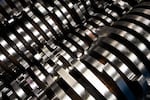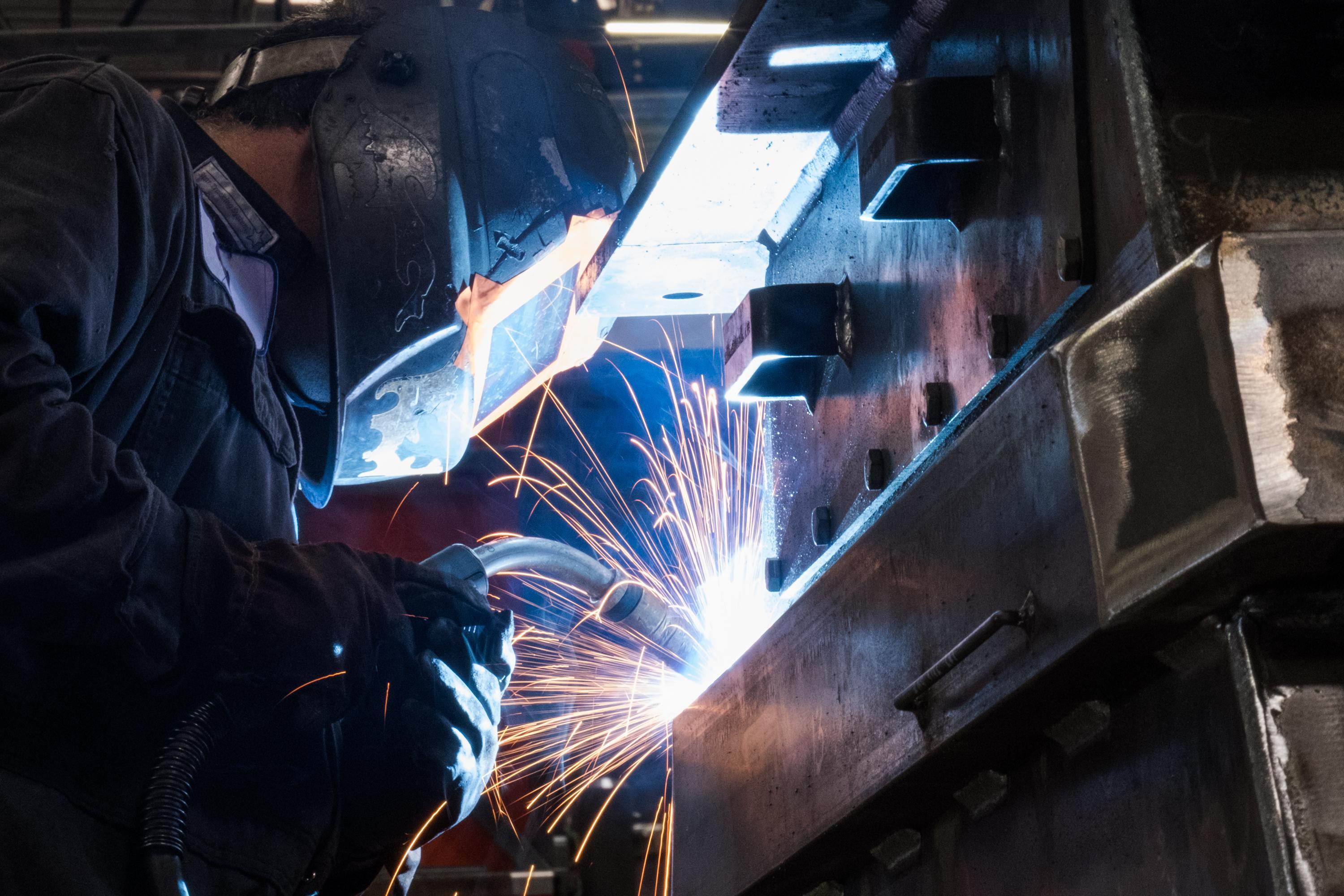Earlier this week, Austin Peterson got word from his company’s office in China.
The business he works for is about to be hit with a 25% tariff from China, effective June 1.
Peterson is parts and service director for SSI Shredding Systems in Wilsonville, which makes industrial shredders and recycling equipment. Their machines are used to shred everything from milk jugs to cars, in preparation for recycling. Peterson says the company's Chinese customers are currently waiting for roughly $1.5 million worth of shipments. Those shipments are about to become much more expensive.

Large metal teeth inside an industrial shredder are pictured at SSI Shredding Systems, Inc. on Wednesday, May 15, 2019, in Wilsonville, Ore. The shredders rip up things like scrap metal into tiny bits, making it easier to melt for future use.
Bradley W. Parks / OPB
"These are hundreds of thousands of dollars — from $250,000 to $1 million a machine. Twenty-five percent of that number is a lot. Not to mention exchange rates and value-added tax. ... We pretty much expect that if things stay the same way, it will be a complete loss of business in that market."
Last week President Donald Trump increased tariffs on $200 billion worth of goods imported from China. On Monday, China said it would retaliate with new tariffs on American products. This is the tariff increase SSI Shredding Systems currently faces. Peterson says his company doesn't want to give up on the expanding market in China, but it will have to explore other options to compete against European manufacturers who don't face such steep tariffs.
"We'll try to explore all the business alternatives we have. Can we make things there and sell there? That's really what these things push you to do. Our alternative, to stay in that market, is to make things in China to sell in China."
SSI Shredding Systems is also caught in the whirlwind of Trump's trade war with China in another way: they use steel to build their giant machines. Last spring the president imposed a 25% tariff on steel imports into the U.S. Peterson says they tried to absorb the increased cost of steel as best they could to keep their prices low for customers, but that was tricky when it came to buying parts.
"If we buy a motor, it may be that the fan blade or the motor, is made in China. And so all of our components saw a price increase from 2% to 15% in a really short time."

John Allen, a shredder mechanic, works on part of a new machine at SSI Shredding Systems, Inc. on Wednesday, May 15, 2019, in Wilsonville, Ore. SSI and companies like it import many materials to build their machines and then export the machines across the globe. Tariffs like those imposed under the Trump administration affect nearly every portion of their supply chain, threatening jobs.
Bradley W. Parks / OPB
That, says Peterson, makes his company much less competitive in the global market.
"European competitors probably don't have the same level of steel and aluminum tariffs from China and they buy their stuff from the same places that we do ... and in some ways, it makes it a little bit easier for our competitors to do business in the U.S. So it seems really ironic that it's working in the reverse."
SSI Shredding Systems employs about 150 people in Oregon. Peterson says he expects these tariff increases to impact some of those jobs.
